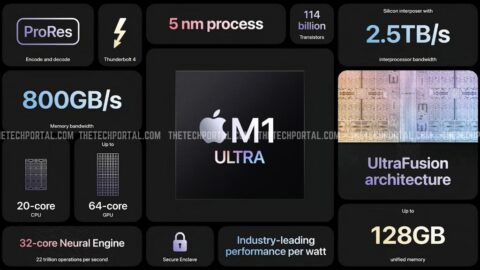Sharda University is one of the biggest higher education providers in North India. It has almost 20,000 students from more than 80 countries. Across undergraduate, postgraduate and doctoral, this private university in Greater Noida offers more than 216 programs in 13 schools to its students. Operating on such a scale led decision makers at Sharda University to think how it can provide a different model of education to its students that will be beneficial for the university, student community and society as a whole.
One of the key members involved in tech-led transformations at the university, Divesh Kamboj, VP-Information Technology, explains how Sharda University then opted for advanced analytics to better understand and track admission trends, which helps the educational institution in correlating data between market demand and expectations.
 TTM.com/wp-content/uploads/2020/02/Divesh-Kamboj-cxo-24×20.jpg 24w, https://www.TTM.com/wp-content/uploads/2020/02/Divesh-Kamboj-cxo-36×30.jpg 36w, https://www.TTM.com/wp-content/uploads/2020/02/Divesh-Kamboj-cxo-48×40.jpg 48w” sizes=”(max-width: 300px) 100vw, 300px”>
TTM.com/wp-content/uploads/2020/02/Divesh-Kamboj-cxo-24×20.jpg 24w, https://www.TTM.com/wp-content/uploads/2020/02/Divesh-Kamboj-cxo-36×30.jpg 36w, https://www.TTM.com/wp-content/uploads/2020/02/Divesh-Kamboj-cxo-48×40.jpg 48w” sizes=”(max-width: 300px) 100vw, 300px”>“Education has moved beyond teaching in the classroom to what I call technology assisted education. This uses emerging technologies to counteract things like the diminishing attention span of students and enhance the learning experience. To do this successfully on an ongoing basis requires deep data insight,” he says, adding that with Oracle Cloud, the institution’s data has a voice that is helping them transform and predict success. Say, now the institution can predict which seats for a particular specialization will get filled faster.
Kamboj believes, millennials have become used to an ‘insta-everything’ world. From online classes to just-in-time communication, they seek intuitive technology experiences that extend beyond the pages of their textbooks. They want to receive all the information about their classes, progress, academic as well as personal assistance on their hand-held devices. They want their courses in online modules which can be consumed on their devices in a self-paced learning model.
“This puts the pressure on universities to go beyond their traditional boundaries of providing academic excellence to learning themselves how to become data driven and then applying that insight. We’ve got to keep pace with the new dynamics of the education industry, and modern technologies are helping us immensely in this journey,” he says.
Explaining how emerging technology like AI and ML can help in elevating the student-university relationship, Kamboj says, “We’re using insights from our huge data pool to improve the end-to-end -learning process, enhancing the students’ learning experience and outcomes. What we saw was that with teaching decreasing attention spans, faculty communication has to be more engaging. Following development programs around communications, teaching delivery styles and mentoring there was a 12% improvement in our annual student satisfaction ratio. Mentoring too made a lot of difference to student performance. And helping us glean these insights are AI/ML powered solutions.”
Read more: Oracle To Open Its First India Data Center
For instance, we use Oracle Autonomous Data Warehouse and Oracle Analytics Cloud, we’re now able to forecast better and speed up the insights-to-decision cycle. So from offering new courses that’s demanded by the industry, to helping students undertake projects in areas where emerging technologies have great applicability, using AI/ML has helped us unlock actionable insights faster. Ultimately, we want to future-proof our students’ learnings so they’re employable as soon as they graduate.
Now the large pool of student data can be utilized to its fullest. Kamboj explains, “The data is collected from the students’ attendance, results, feedback, and other activities, which is stored in Oracle Autonomous Data Warehouse, and then run on Oracle Analytics Cloud, to get insights from real-time data, and to draw out patterns from the same. Owing to these patterns, we have been able to develop a predictive model which makes us proactive in delivering education services and meet stakeholder expectations,” he says.
In fact, Kamboj opines, with Oracle autonomous cloud features, Sharda University now relies on it for updating, and patching of the systems. This has made our work much easier, and since it has reduced our dependability on people, it has in turn saved us time and costs.
Read more: The Future of India’s $2 Bn Edtech Opportunity Report 2020
“We’ve also started using Oracle Digital Assistant within our mobile app to assist the institution manage the huge number of enquiries received by our call center. As an example, students wanting to take leave or report issues will be able to use it to log details which will then be passed on to the relevant department. It’s been great so far,” he says, adding that the AI and natural language processing (NLP) features make it really engaging, to the extent that students already feel very comfortable interacting with it. The ML means it learns, so you can ask more of it and get better answers in a more natural and conversational way over time.
“Our intention is to give students all information they want, when they want – in a way that is very familiar to them – through the messaging tools they’re already using. We’re looking forward to expanding its usage and bringing in voice integration,” he concludes.
The post How Oracle Helps Sharda University Speed Up Data Driven Decisions appeared first on TTM.com.



